- Home
- Naguib Mahfouz
Novels by Naguib Mahfouz
Novels by Naguib Mahfouz Read online
FIRST ANCHOR BOOKS EDITION, NOVEMBER 1993
Copyright © 1983 by Naguib Mahfouz
English translation copyright © 1992 by The American University in Cairo Press
All rights reserved under International and Pan-American Copyright Conventions. Published in the United States by Anchor Books, a division of Random House, Inc., New York, and simultaneously in Canada by Random House of Canada Limited, Toronto. The English translation was first published by the American University in Cairo Press in 1992. First published in Arabic in 1983 as Rihlat ibn Fattuma. The Anchor Books edition is published by arrangement with The American University in Cairo Press. The Journey of Ibn Fattouma was originally published in hardcover by Doubleday in 1992.
Anchor Books and colophon are registered trademarks of Random House, Inc.
All of the characters in this book are fictitious, and any resemblance to actual persons, living or dead, is purely coincidental.
Library of Congress Cataloging-in-Publication Data
Maḥfūẓ Najīb, 1912– .
[Riḥāt Ibn Faṭṭūmah. English]
The journey of Ibn Fattouma / Naguib Mahfouz : translated by Denys Johnson-Davies.—1st Anchor Books Ed.
p. cm.
1. Middle East—Fiction. I. Title.
PJ7846.A46R513 1993
892′.736—dc20
93-2041
ISBN 9780385423342
eBook ISBN 9780525431602
www.anchorbooks.com
v4.1
a
Contents
Cover
Title Page
Copyright
1 The Homeland
2 The Land of Mashriq
3 The Land of Haira
4 The Land of Halba
5 The Land of Aman
6 The Land of Ghuroub
7 The Beginning
About the Author
About the Translator
Books by Naguib Mahfouz
1
The Homeland
Life and death, dreaming and wakefulness: stations for the perplexed soul. It traverses them stage by stage, taking signs and hints from things, groping about in the sea of darkness, clinging stubbornly to a hope that smilingly and mysteriously renews itself. Traveler, what are you searching for? What emotions rage in your heart? How will you govern your natural impulses and capricious thoughts? Why do you guffaw with laughter like a cavalier? Why do you shed tears like a child? You witness the pleasures of terpsichorean feasts, you see the executioner’s sword as it lops off heads, and every action, fine or base, is initiated in the name of God the Merciful, the Compassionate. You are taken over in your ecstasy by protective shades as skilled as any sorcerer—the mother, the teacher, the loved one, and the chamberlain—protective shades that do not withstand the winds of Time but whose names remain crowned with immortality. However much the place distances itself from me it will continue to let fall drops of affection, conferring memories that are never forgotten, and etching its mark, in the name of the homeland, in the very core of the heart. So long as I live I shall passionately love the effusions of the perfume vendors; the minarets and the domes; the radiant face of a pretty girl illuminating the lane; the mules of the privileged and the feet of the barefooted; the songs of the deranged and the melodies of the rebab; the prancing steeds and the lablab trees; the cooing of pigeons and the plaintive call of doves.
My mother addresses me. “The day you were born.”
She shakes her beautifully fashioned head and I say joyfully, “It was really your day.”
My father was Muhammad al-Innabi, a prosperous grain merchant. He produced seven notable merchant sons and lived till he was over eighty, enjoying good health and vigor. At the age of eighty he saw my beautiful mother, Fattouma al-Azhari, who was then a young girl of seventeen, the last child born to a butcher called al-Azhari Qatayef. She took my father’s heart by storm. He married her and lived with her in a spacious house he bought in her name, occasioning much fury and uproar in his family. My brothers regarded the marriage as a squalid and illicit piece of fun, and they sought the intervention of the cadi and the head of the merchants, but my father slipped from their grasp. He was like a lover stripped of all willpower. He deemed marriage a right that was not open to discussion and the difference in age an illusion used as an argument by those who were biased. He went on drinking from the source of his happiness with a heart full of confidence.
“And your birth brought both confirmation of their defeat and renewal of their fury.”
And often I would say to her, “There is no limit to man’s greed!”
From my early youth I would be addressed with the pleasantest of words but cruelly exposed to the ugliest of treatment. My father called me Qindil, but my brothers gave me the name Ibn Fattouma, Son of Fattouma, washing their hands of any possible relationship with them and casting doubts upon my mother.
My father died before his image became engraved on my consciousness, leaving us with enough money to assure us of an agreeable life until the end of our days. The quarrel between us and my brothers was interrupted, but my mother feared for us both and became so carried away by misgivings and doubts that she decided not to send me to the elementary school. She put me instead in the charge of Sheikh Maghagha al-Gibeili, a neighbor of her family, to instruct me at home. From him I received lessons in the Quran, the Sayings of the Prophet, philology, arithmetic, belles-lettres, jurisprudence, Sufism, and the literature of travels. A man in his forties, he was strong and of dignified appearance, with an elegant beard, tall turban, and comely jubba; he had bright, penetrating eyes and would deliver the lesson in a full voice which he used in a quietly deliberate manner, subduing all difficulties by the excellence of his explanations and the gentleness of his smile. My mother, benefiting from a lengthy period of leisure, would follow the lessons attentively from behind a screen when we were in the hall in winter, and through an aperture when we were in the reception room during the other seasons.
“I see you’re happy with your teacher,” she would say to me. “That’s very fortunate.”
“He’s a great sheikh,” I would tell her enthusiastically.
He used to allot a certain time to discussion, when he would put forward such questions as occurred to him and would invite me to make known my own thoughts, treating me like a grown-up.
Then one day—I don’t remember how old I was—I asked him, “If Islam is as you say it is, why are the streets packed with poor and ignorant people?”
“Islam today,” he answered me sorrowfully, “skulks in the mosques and doesn’t go beyond them to the outside world.”
He would speak at length, castigating the prevailing conditions. Even the Sultan was not immune from his criticism.
“Then it is Satan who is controlling us, not the Revelation,” I said.
“I congratulate you on your words,” he said approvingly. “They are greater than your years.”
“And what is to be done, Master?”
“You are intelligent,” he said calmly. “Be patient.”
As for what he had to say about travels, it instilled in me both passion and joy. During his discourse he talked about a certain ancient traveler.
“I myself,” he continued, “came to know traveling in the company of my late father, and we roamed the East and the West.”
“Tell me about the things you saw, Master,” I said eagerly.
He spoke so liberally that I lived in my imagination the vast lands of the Muslims, and my own homeland seemed to me like a star in a sky crammed with stars.
“But you will not come across anything really new in the lands of Islam,” he said.
My eyes inquired of him the rea
son and he said, “All of them are close in circumstance, inclination, and ritual, all of them far distant from the spirit of true Islam. But you will discover new and strange lands in the southern desert….”
He aroused my yearnings to the bursting point. Then he said, “I undertook that journey on my own, following the death of my father. I visited the lands of Mashriq, Haira, and Halba, and had it not been for unfavorable circumstances I would have visited Aman, Ghuroub, and Gebel, but the caravan came to a stop at Halba because civil war was breaking out in Aman.
“And they are heathen lands,” he said, fixing me with a strange look.
“God forbid!” I exclaimed.
“But both there and on the way the stranger will find nothing but security, owing to the pressing need for trade and travelers.”
“But it’s abominable!”
“The observer is under no compulsion,” he said quietly.
“And why didn’t you repeat the experience?”
“The circumstances of life and family made me forget the most important objective of the journey, which was to visit the land of Gebel.”
“And what’s the importance of the land of Gebel?” I asked him eagerly.
“You hear a lot about it,” he said with a sigh. “It’s as though it were the miracle of countries, as though it were perfection itself, incomparable perfection.”
“Many travelers have doubtless written about it.”
“I have never in my life,” he said in a tone not devoid of sorrow, “met a human being who has paid it a visit, nor have I found a book or manuscript about it.”
“It’s an extraordinary, unbelievable thing,” I said, dejected.
“It’s a closed secret,” he said gloomily.
And like any closed secret it drew me to its edge and plunged me into its darkness. My imagination was fired. Whenever I was upset by a word or action, my soul fluttered around the land of Gebel.
Sheikh Maghagha al-Gibeili continued to enlighten my mind and spirit, dispersing the darkness from around me and directing my cravings to that which is most noble in life. My mother was happy at what I was gaining day by day and participated in shaping me by her love and her beauty. She was of medium height and slender build; her complexion was fair and exuded a sweet serenity. Never did she hesitate to express her admiration for my handsomeness, though telling me with the same frankness, “Your words often disturb my peace of mind.”
I inquired the reason and she said, “It’s as though you see only the ugly side of life.”
She would not deny what I said or see therein any exaggeration, but she expressed her faith with the words “God is the Maker of everything and He has in everything an underlying reason.”
“I am upset by injustice, poverty, and ignorance.”
“God demands that we be content in all circumstances,” she insisted.
I raised the subject for discussion with the sheikh, but his attitude was perfectly clear, believing as he did in the intellect and in freedom of choice, though he gently whispered in my ear, “Avoid distressing your mother.”
It was advice that I was bound to follow, driven and supported as I was by my great love for her. I found no difficulty in that, for her guilelessness was on a par with her beauty. However, the days that brought me lessons and instruction also pushed me to the threshold of adolescence, so that the skies poured down fresh rains and places of interest manifested themselves in the light of fresh torch flares.
“What are you intending to do in this life whose only fulfillment is through work?” Sheikh Maghagha al-Gibeili asked me.
But I was seeing Halima Adli al-Tantawi in a new way. For a long time I had seen her, during my years of boyhood, leading her father, the blind Quran reciter. They had a small, old house in the alley in which our own stood shining like a star. My attention would pass her by and attach itself to her father with his thin frame, his blanked-out eyes and coarse, pockmarked nose. He aroused my sympathy and my astonishment, while I admired his voice as he gave the call to prayer, rendering this voluntary service in front of the door of his house. The quickly passing days turned my attention to the girl and I discovered her anew. The ground of the alley was slippery as a result of a light shower, and the old man was walking cautiously, having given his left arm to his daughter and his right to a thick stick that felt out positions for his feet with successive taps like a chicken’s beak searching for grain. Halima walked alongside him wholly enveloped in a dark, flowing garment from which there showed, from the lowered veil, nothing but two eyes. But her form took on, to my eyes impregnated with the freshness of recent manhood, the shape of a consummate female, her shielded jewels coming to life whenever the breeze blew against her garment, as though they were burning coals under ashes. Her foot slipped, or almost did, and she braced herself quickly so as to retain her balance, at which her head made an involuntary movement that caused the veil to drop from her face. Thus it became wholly imprinted on my sight, its beauty embedded in the nooks and crannies of my very being. In a fleeting moment I received a long message charged with all the intimations that determine the fate of a heart.
My mother, on the strength of Sheikh Maghagha’s words about work fulfilling one’s life, asked me, “Do you not agree that commerce would suit you best?”
I astonished her by saying, “I am thinking first of all of marriage.”
She warmly welcomed the postponement of discussion about work, and she started describing to me certain daughters of merchants. Once again, though, I astonished her by saying, “My choice has fallen on Halima the daughter of Sheikh Adli al-Tantawi.”
My mother did not conceal the shock she felt. “In everything she is below what is demanded.”
“But I want her,” I insisted.
“Your brothers will gloat over us because of your unfortunate choice.”
But my brothers were like something that had never been, as my feeling that I was the man of the house was growing with time. She did not oppose me, though she gave her agreement grudgingly, while at the same time not losing hope.
All of a sudden things went in accordance with my wishes, even though at a heavy price. My mother’s opposition had lessened until she said to me resignedly, “Your happiness is dearer to me than any other consideration.” At once she undertook what was expected of her and went from our mansion to the shabby house and asked for Halima’s hand for me. On a later occasion she took me with her and we sat with Sheikh Adli al-Tantawi and his wife, and the bride made her appearance and revealed such parts of the face and hands as the religious law permits, stayed for a few minutes and left. The preparations for the wedding were made with commendable speed.
Then one day I noticed that my teacher, Sheikh Maghagha al-Gibeili, was suffering from a certain unusual embarrassment and that he was talking to me in a quite new tone. Looking down at his slippers, he said quietly, “There is an important matter, Qindil.”
My curiosity was much aroused. “I’m at your disposal,” I said.
“I can no longer bear my solitude,” he said sadly.
The sheikh was a widower. He had three daughters who had married and were settled in their homes.
“And why do you remain alone?” I asked him innocently. “Did not the Prophet, may the blessings and peace of God be upon him, marry following the death of his wife Khadija?”
“You’re right, and that’s what I’m thinking of doing.”
“You are a man,” I said warmly, “who would be welcome in the noblest of families.”
“But my request is in none other than your own family,” he said shyly.
“My family?”
“Yes,” he said humbly. “Your lady mother.”
“But my mother won’t marry,” I said hurriedly.
“Why not, Qindil?”
Briefly at a loss, I said, “She’s my mother.”
“Marriage,” he said quietly, “is the law of the Almighty. It won’t be easy for you to marry and to leave your mother on her own.�
�� He was silent for a while, then said, “May God guide us to the right path.”
In my loneliness, my thoughts clashed together and events arranged themselves in my mind in a new and gloomy form. I told myself that my mother’s sudden compliance with my wish to marry Hailma had resulted only from her own wish to be married to Sheikh Maghagha al-Gibeili. Innocent things had happened behind my back, yet they stuck in my gullet. I found myself in a delicate position between, on the one hand, the two persons most dear to me in life and, on the other, my anger, indignation, and embarrassment.
“O Lord,” I exclaimed from the depths of my soul, “save me from wrong and stupidity.”
The truth is that I behaved in a way worthier of a person older in both years and experience. I let matters proceed in accordance with God’s will and persuaded my mutinous self that marriage was the right of man and woman; that my mother was not only a mother but also a woman; and that we had been created in order that we might endure the truth and stand up to it, receiving our share of pleasure and pain with the courage of believers. I took upon my shoulders the experience in all its dimensions and spoke to my mother of the matter with my customary frankness. She exhibited an astonishment that irritated me.
“It didn’t occur to me,” she muttered.
“But it’s only right and just,” I said coolly.
I went on digesting my sense of frustration as she said falteringly, “I want a chance to think it over.”
I regarded that as the first sign of agreement, so inconsistent was it with the manner of open refusal, and I waited with dispirited heart till she whispered to me with bashful confusion, “Let it be as God wills.”
I pondered about how we embellish our longings with luminous words of piety, and how we conceal our shyness with firebrands of divine inspiration.
The usual preparations were made for the marriage of both son and mother, and it was agreed that my mother should transfer to the house of Sheikh Maghagha, a pleasant enough house, and that Halima should come to the mansion. I determined to take refuge in the happiness that had been afforded me and to shake off the residue of my worries. However, destiny descended upon us and scattered our plans to the winds. The Sultan’s third chamberlain shoved his way into our quiet life and, like a tempest, took it by storm. One day, having seen Halima, he decided to have her as his fourth wife. Sheikh Adli al-Tantawi, in terror, said to my teacher, Sheikh Maghagha, “I am incapable of refusing.”

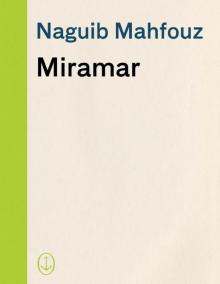 Miramar
Miramar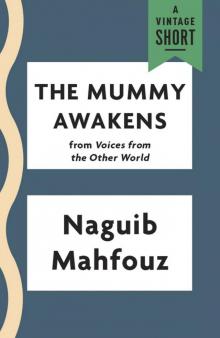 The Mummy Awakens
The Mummy Awakens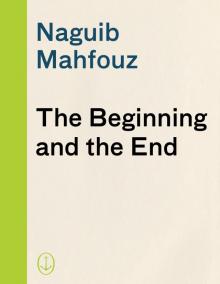 The Beginning and the End
The Beginning and the End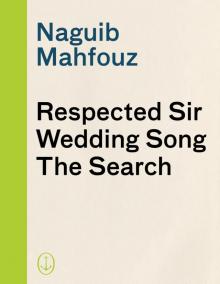 Respected Sir, Wedding Song, the Search
Respected Sir, Wedding Song, the Search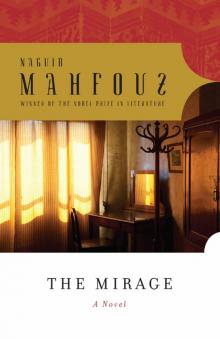 The Mirage
The Mirage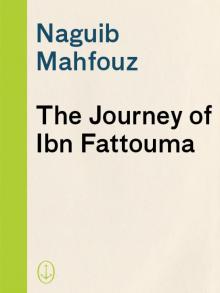 Novels by Naguib Mahfouz
Novels by Naguib Mahfouz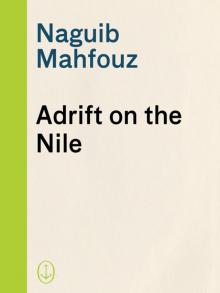 Adrift on the Nile
Adrift on the Nile Karnak Café
Karnak Café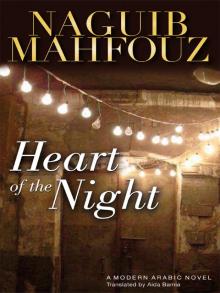 Heart of the Night
Heart of the Night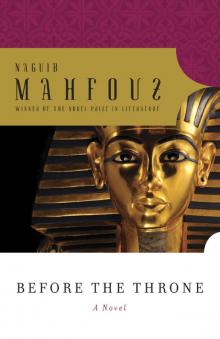 Before the Throne
Before the Throne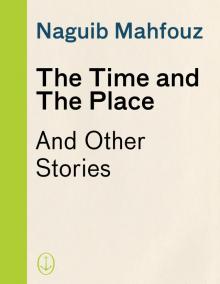 The Time and the Place: And Other Stories
The Time and the Place: And Other Stories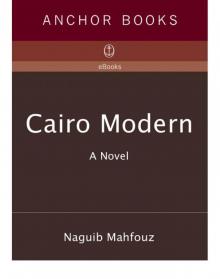 Cairo Modern
Cairo Modern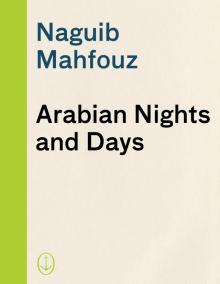 Arabian Nights and Days
Arabian Nights and Days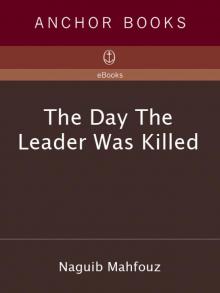 The Day the Leader Was Killed
The Day the Leader Was Killed Morning and Evening Talk
Morning and Evening Talk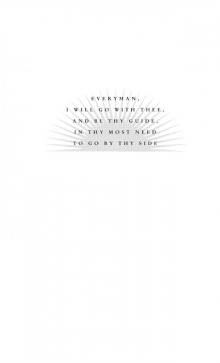 Three Novels of Ancient Egypt Khufu's Wisdom
Three Novels of Ancient Egypt Khufu's Wisdom Akhenaten: Dweller in Truth
Akhenaten: Dweller in Truth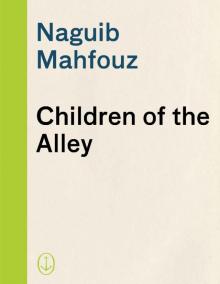 Children of the Alley
Children of the Alley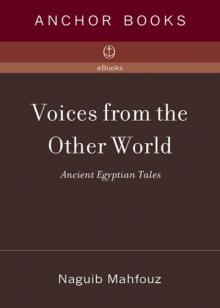 Voices From the Other World
Voices From the Other World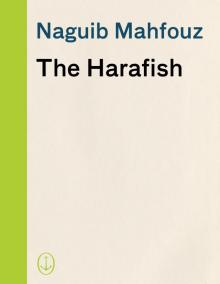 The Harafish
The Harafish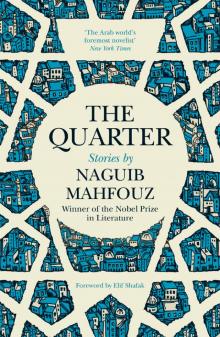 The Quarter
The Quarter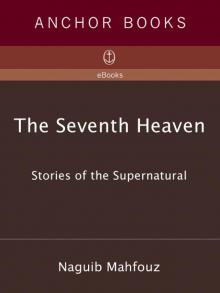 The Seventh Heaven: Supernatural Tales
The Seventh Heaven: Supernatural Tales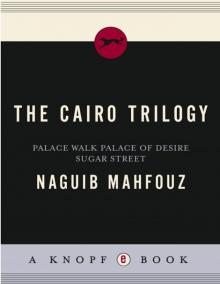 The Cairo Trilogy: Palace Walk, Palace of Desire, Sugar Street
The Cairo Trilogy: Palace Walk, Palace of Desire, Sugar Street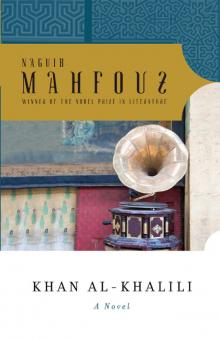 Khan Al-Khalili
Khan Al-Khalili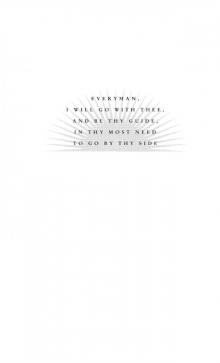 Three Novels of Ancient Egypt Khufu's Wisdom, Rhadopis of Nubia, Thebes at War
Three Novels of Ancient Egypt Khufu's Wisdom, Rhadopis of Nubia, Thebes at War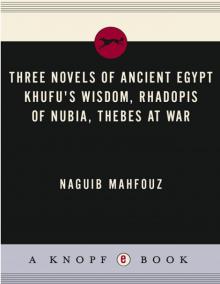 Three Novels of Ancient Egypt
Three Novels of Ancient Egypt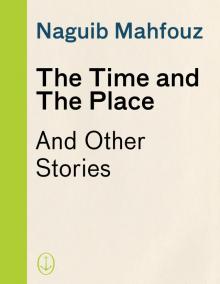 The Time and the Place
The Time and the Place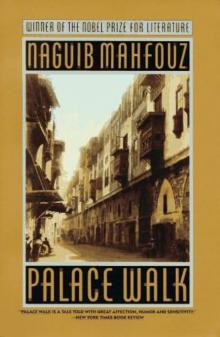 Palace Walk tct-1
Palace Walk tct-1 Akhenaten
Akhenaten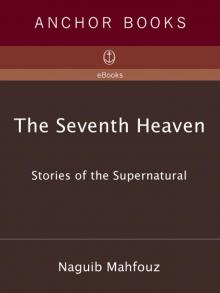 The Seventh Heaven
The Seventh Heaven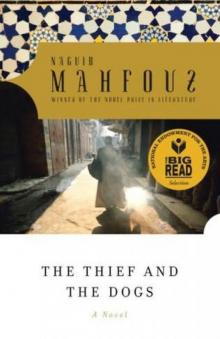 The Thief and the Dogs
The Thief and the Dogs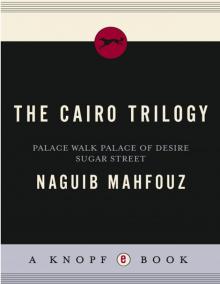 The Cairo Trilogy
The Cairo Trilogy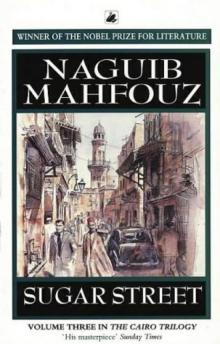 Sugar Street tct-3
Sugar Street tct-3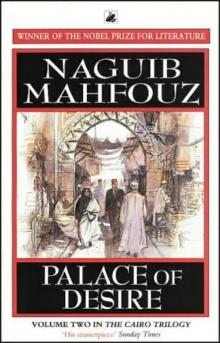 Palace of Desire tct-2
Palace of Desire tct-2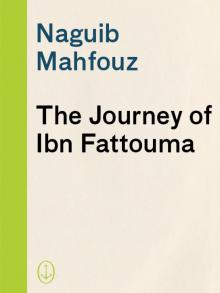 The Journey of Ibn Fattouma
The Journey of Ibn Fattouma